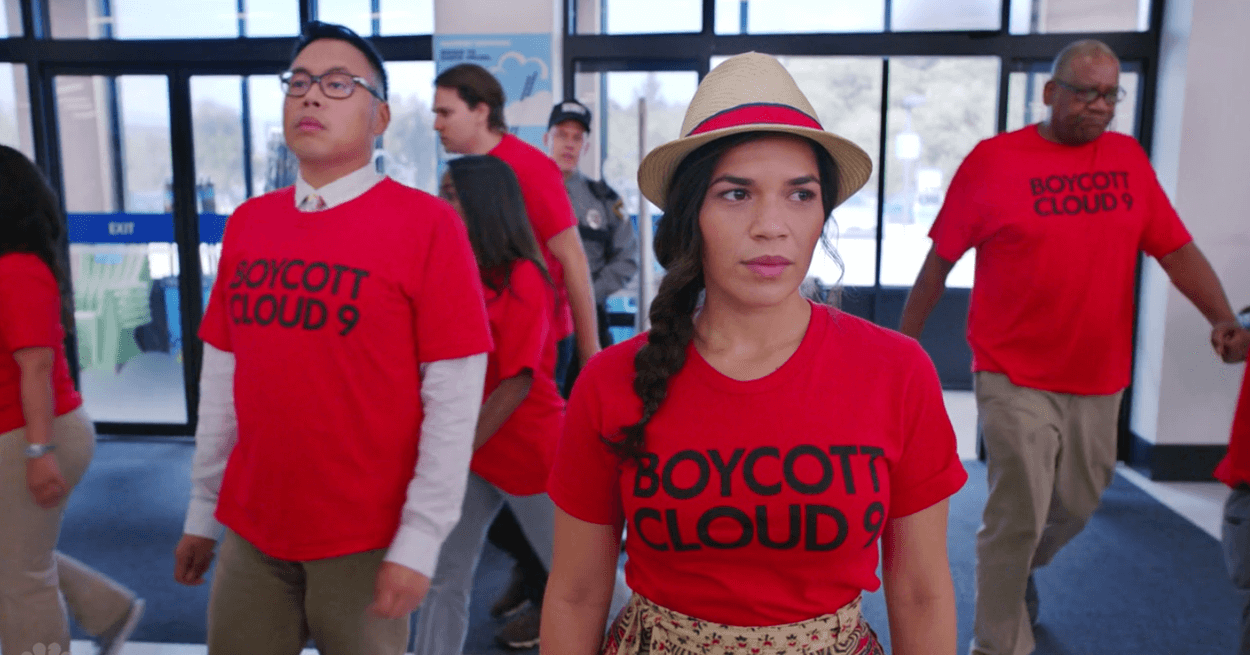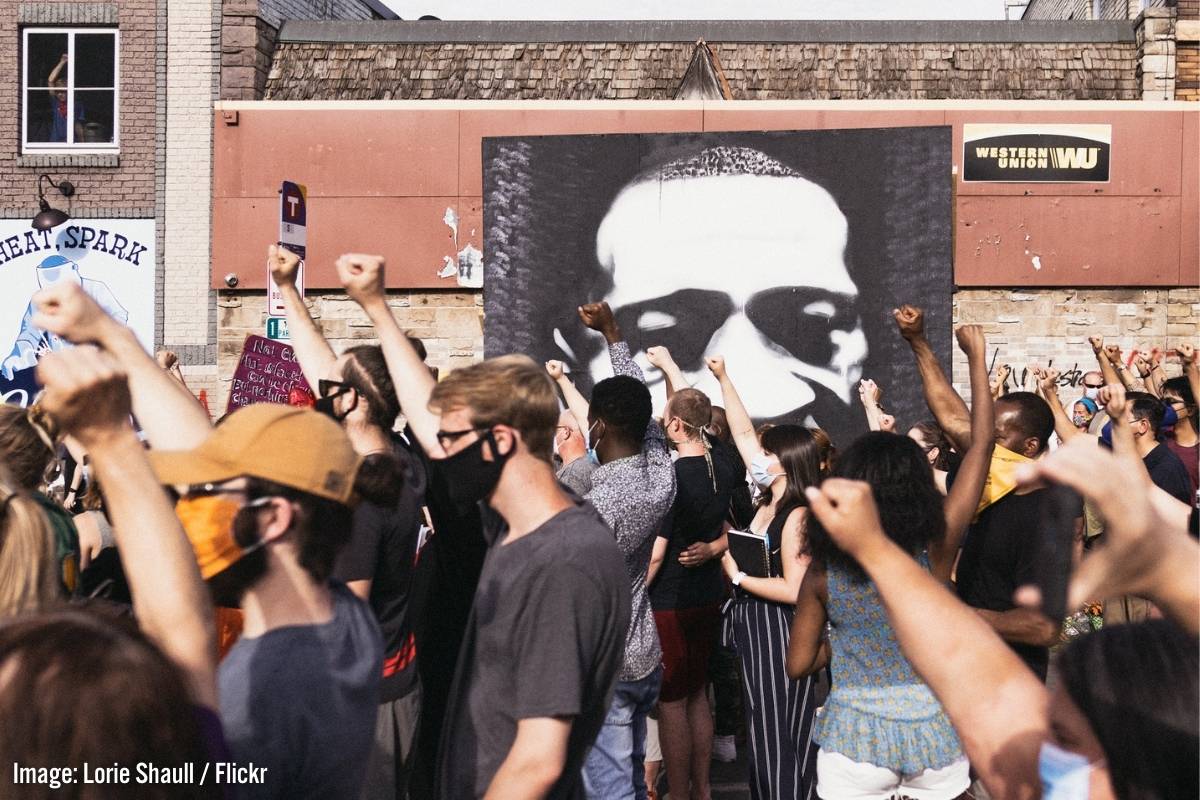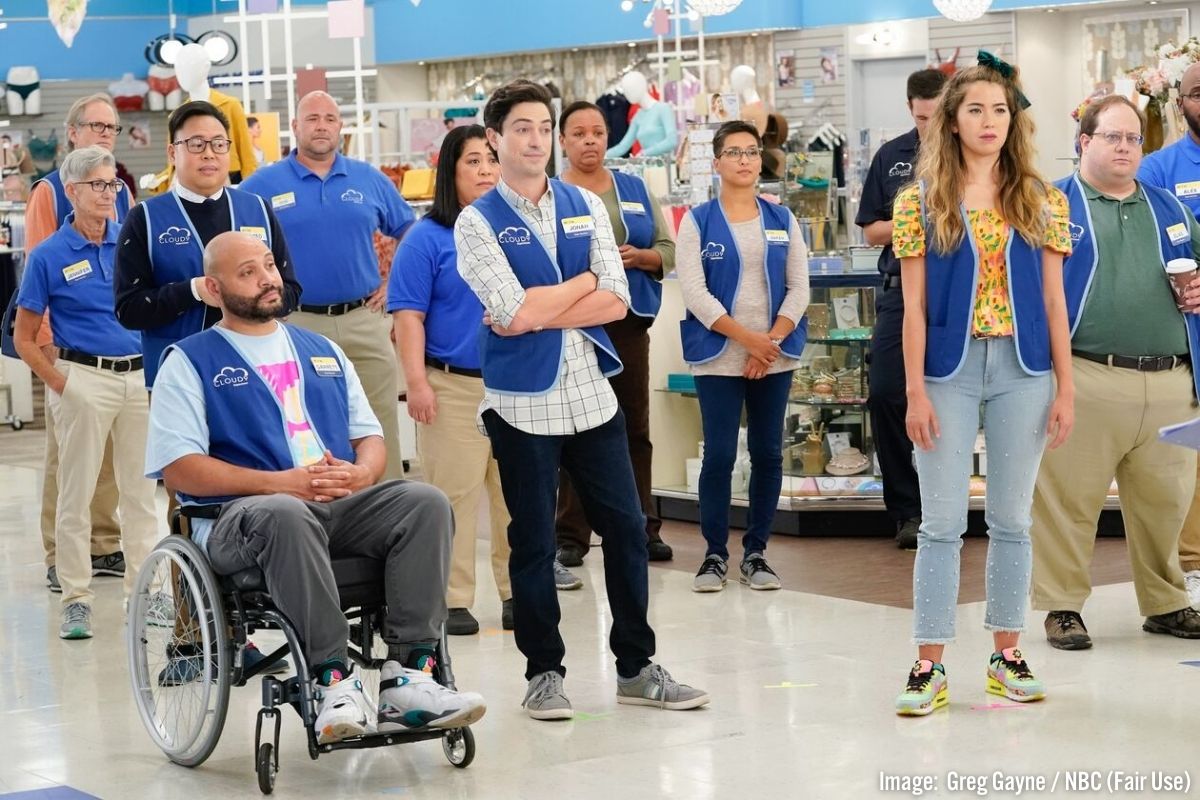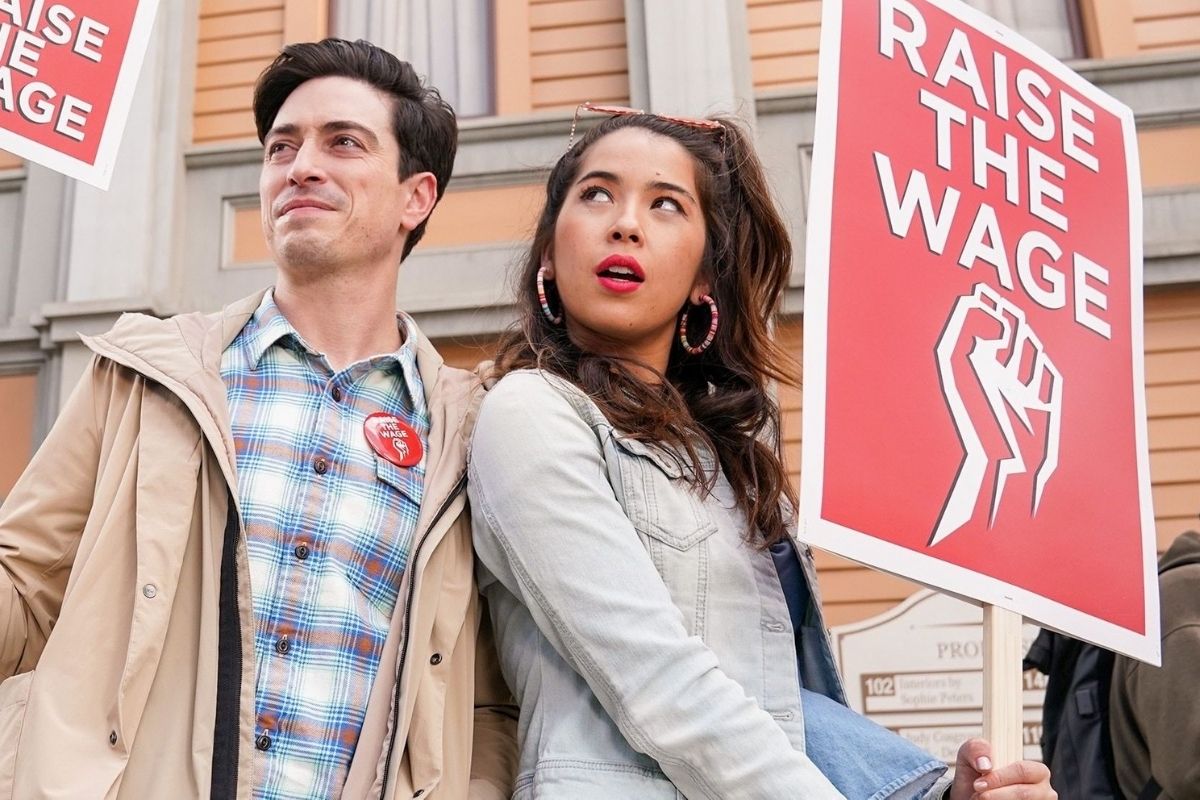US-based sitcom Superstore recently came to an end, after six series depicting the lives of workers at a giant retail company. Their efforts to fight back against the bosses will be all too familiar for exploited workers around the world today.
American TV series Superstore – available on Netflix in the UK – reached its sixth and final season earlier this year. The series is based around a group of workers in Cloud 9, a fictional store (strongly based on Walmart) in Missouri, USA.
Like many sitcoms, the show is enjoyable for its humour and recognisable characters. But, unlike others, it also has an impressively accurate portrayal of class relations.
Many of the episodes focus on attempts by workers to unionise the unorganised superstore. It shows the emotional blackmail against unionisation that constantly comes from the bosses and the mainstream media; and with this, the difficulty that organisers have in persuading workers to join the union.
Unionise

The first season concludes with a shocking event – but one that is not uncommon in real life. One of the workers, Cheyenne (played by Nichole Bloom), gives birth. Manager Glenn gives her paid time-off and gets sacked for it, as the company’s official policy is to try and get rid of workers who have children.
This event tips Cloud 9’s workers over the edge, convincing them that unionising is the only way to defend themselves. As a result, there’s a walkout involving most of the staff, including those who were initially skeptical of unionisation.
A number of episodes focus on the union drive. Later on we also see a growing divergence between the rank-and-file workers on the shop floor, and the union bureaucrats higher up.
As in real life, this bureaucratic layer often seems to be more cautious, conservative, and sometimes pretty self-serving. They are shown as happy to try and strike deals with the bosses in order to avoid a fight.
Ideally the sitcom should have gone much further into this. It should have shown the need to democratise the unions and turn them into fighting, militant organisations, with union officials accountable to the members, and on the same pay as them.
This is what the workers at Cloud 9 needed from their union. But there’s only so much we can expect from an NBC/Netflix sitcom.
Doublespeak
The show hits the nail on the head when it comes to making fun of the doublespeak that the bosses use to cover their abuse of workers.
For example, one scene is set during a blizzard, where the store is about to get snowed in. The manager calls head office and says he’s concerned for the safety of the staff. He is duly answered with, “oh yes, safety of our employees is the most important priority”.
But when he asks if he can let them go early, the response is: “Oh, wouldn’t that be such a sweet gesture…anyway if you need anything else we’ll be here until the store closes.”
He asks: “Are you saying we can’t leave?” And the answer he gets is: “…we’re saying that we appreciate your commitment to stay.”
Many workers will be familiar with this style of cowardly gaslighting!
Cynicism

Many other shows have opportunistically tried to ride the wave of the Black Lives Matter (BLM) movement by pandering to liberal politics. Superstore, by contrast, goes further and actually exposes the total hypocrisy and complicity of big business in racism.
For example, in one episode, in response to the BLM demos, the Cloud 9 management makes a big show of taking the security locks off the cabinet holding hair products marketed for black people (something that stores like Walmart actually have in place).
The management then put up a sign saying: “We believe in black lives.” This is rightly portrayed by the programme as nothing more than cynical gesturing; and the episode shows how racism is built into the workplace structure.
Unity

In the final episode of season four, management colludes with the federal government’s immigration service (ICE) to undermine a union recruitment drive. When Mateo (an undocumented worker) is chased by ICE officers, several of his co-workers try to help him escape.
Unfortunately, Mateo is arrested, and everyone is horrified and angry as they stand watching him leave. Significantly, this included those workers who were previously saying ignorant things about immigration etc. This shows how events can impact consciousness. The call to unionise is reasserted.
In another storyline, a group of male workers start to spread reactionary rumours claiming that men are to be made redundant by the new female CEO. A workplace meeting is organised so they can air their issues.
The show correctly exposes the basis of these ideas as dangerous and bigoted, but then goes further. When one of the men reveals that he’s actually just scared of the precariousness of his job, and the instability of the world in general, the episode shows him starting to concede that his anger and fear may be misdirected.
Profit
Finally, in the last season, we are shown how the store is impacted by COVID-19. Jobs come under threat, and closure of the store is on the cards, as online shopping becomes the norm. Again we see how the protection of profit takes precedence over workers’ livelihoods.
Over its six series, Superstore proves to be both funny and very revealing. It accurately shows the ongoing struggle between the underpaid and overworked staff, on the one hand, and the ruthless corporate management and their billionaire bosses on the other.
Workers in companies such as Amazon will find this all very familiar – if not such a laughing matter.






